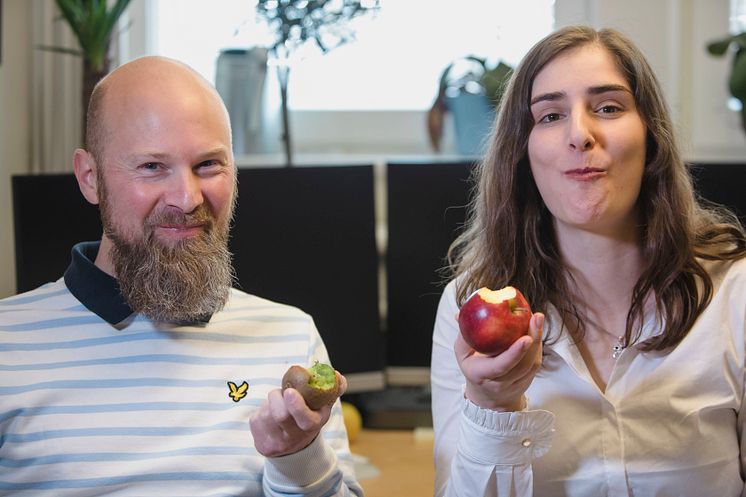
Image -
Björn & Fabiola
Björn Schröder, researcher at Department of Molecular Microbiology, affiliated to Molecular Infection Medicine Sweden, and Fabiola Puertolas Balint, doctoral student at Department of Molecular Microbiology.
Mattias Pettersson
- License:
- Media Use
The content may be downloaded by journalists, bloggers, columnists, creators of public opinion, etc. It can be used and shared in different media channels to convey, narrate, and comment on your press releases, posts, or information, provided that the content is unmodified. The author or creator shall be attributed to the extent and in the manner required by good practice (this means, for example, that photographers should be attributed).
- By:
- Mattias Pettersson
- Copyright:
- Free for publishing
- File format:
- .jpg
- Size:
- 6720 x 4480, 3.53 MB
